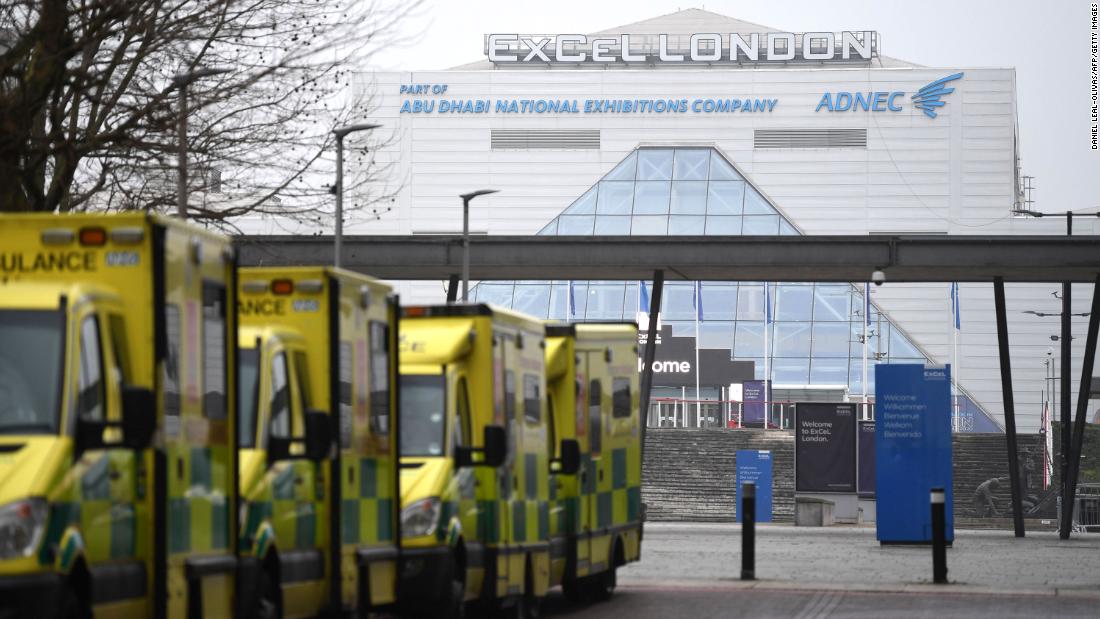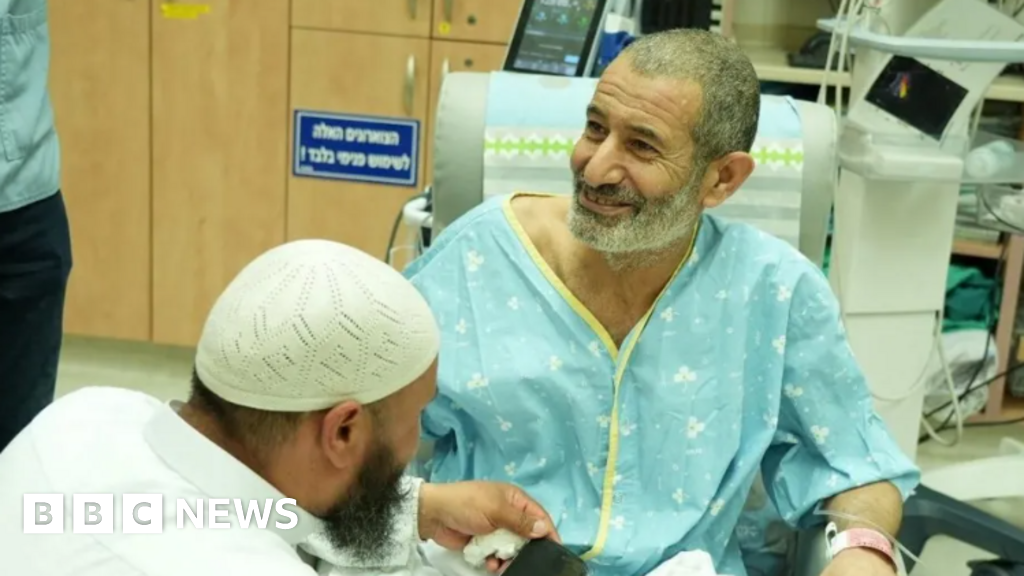A spokesperson for the National Health Service (NHS) told CNN on Saturday that those in charge of field hospitals – which were set up in haste during the first wave of the pandemic but have largely stopped since then – were asked on December 23 to „prepare the services for use.“
The NHS has been under severe pressure in recent weeks with the emergence of a new variant of the virus, especially in southeast England – including London, Kent and Essex – and parts of Wales.
On Friday, the United Kingdom reported 53,285 new confirmed cases of Covid-19 and 613 new deaths. On Thursday, it reported 55,892 new cases, the highest daily number in the country since the start of the epidemic.
According to the latest government healthcare data on January 1, there are currently 22,534 patients with coronavirus in hospitals across England, of whom 1,940 patients with confirmed Covid-19 infection need mechanical ventilation beds.
Doctors have made emotional calls for the public to stay at home and follow government guidelines on social distancing as hospitals and other healthcare services come under severe pressure.
In another message published on Thursday, Pearce said: “The media reports of pressures on the NHS are all true. The situation in London is now much worse than the first wave, and is still deteriorating. It is sad to see long lines of ambulances outside the hospital where I am. Action.“
„Record numbers“ for Covid patients
London Mayor Sadiq Khan told CNN that the capital’s hospitals are dealing with „record numbers“ of Covid-19 patients as well as the regular increase in winter demand not associated with Covid.
„We now have more Covid patients in London hospitals than at any time during this pandemic, and the National Health Service in London, hospitals in London and our wonderful health workers in London are suffering from stress,“ Khan said Thursday.
Khan said he was „concerned“ that hospitals would become overcrowded, but added that the NHS had the flexibility to increase capacity, for example by canceling some routine and elective surgeries.
„But the source of our great concern is, if we continue to see an increase in the spread of the virus, it is likely that hospitals will not have the capacity to adapt and this is the source of concern especially because we have not yet reached the usual January, the peak of Covid.“
Asked if the military could step in to help the new patients, British Defense Secretary Ben Wallace told the Radio Times on Thursday: „Of course we are ready to help with the Nightingales if the critical pressures exceed the current capacity of the NHS.“
He said the military is currently deploying around 5,000 personnel in the Covid-19 response.
Most of England is now under the toughest level of restrictions to try to limit the spread of the virus.
Amidst the deteriorating situation, ministers were forced to backtrack on the decision to reopen some primary schools in London next week, after coming under pressure from local authorities and teaching unions. All schools in London will now switch to distance learning from Monday, when the new term begins, as only marginalized and vulnerable working children are allowed to attend in person.
The change of course came just two days after the UK Ministry of Education announced that nine neighborhoods in London and the City of London will keep primary schools open, while schools in 23 other areas will remain closed. Khan wrote on Twitter on Friday that the government „finally realized its sane mind and turned it“ on its plan to open schools in some areas.
Vaccine deployment plan
The new strategy, announced Wednesday by the head of the UK’s MHRA, means that the interval between doses can be extended to 12 weeks, instead of the previously prescribed three weeks.
The Pfizer / BioNTech vaccine has been in use in the UK since early December, when it became the first country in the world to have approved it, but supplies are limited. Pfizer said it has no data to prove that just one dose of its vaccine will protect against the disease after more than 21 days.
Regulators in the UK have also advised that the second dose of the newly approved Oxford / AstraZeneca be given after four to 12 weeks.
More than half a million doses of the Oxford / AstraZeneca vaccine will be available as of Monday, according to British Health Secretary Matt Hancock, and millions more will follow in the coming weeks. The vaccine is cheaper and easier to dispense than the Pfizer / BioNTech vaccine because it can be kept at normal refrigerator temperatures for at least six months.
But even if the government achieves its goal of rapidly vaccinating millions of elderly and clinically vulnerable people, thus reducing hospital admissions associated with the COVID-19 virus, the UK faces some tough weeks ahead.
„It’s a very bleak and sad picture at the moment“ in England, Deputy Chief Medical Officer Jonathan Van Tam told a news conference in Downing Street on Wednesday. „It is almost certain that the NHS has not yet seen the impact of the contagion that will occur during mixing at Christmas, and this unfortunately is realistic.“
The new alternative is more popular in less than 20 years
As of January 1, at least 30 countries, including the United States, have reported cases of the most contagious type of coronavirus that was first detected in the United Kingdom.
A study by a collaborative team from Imperial College London, the University of Edinburgh, Public Health England and others confirmed that the variant had greater transmissibility and was more prevalent in people under the age of 20.
While the study, released on Thursday, found that people under the age of 20 make up a greater proportion of cases of the new variant of the virus, its authors said it was too early to determine the reasons for this, adding that more research is continuing.
There is no evidence that the substitute is more deadly or causes more serious illness, according to health officials.
In response to the study, Jim Naismith, a professor of structural biology at the University of Oxford, told the Media Science Center in the United Kingdom that „it cannot be overestimated how dangerous this new strain is“ in terms of reducing the rate of infection.
He said: „Unless we do something different, the new virus strain will continue to spread, more infections, more hospitalization, and more deaths.“ „The NHS is under serious pressure and without change it will get worse. January and early February will be difficult. If we fail to curb the spread of the new strain it is likely to overwhelm the NHS, the consequences of that will be terrible.“
CNN reporter Hira Humayun contributed to this report.

„Študent. Nadšenec kávy. Badateľ priateľský k hipsterom. Zlý podnikateľ. Extrémny internetový fanatik.“





